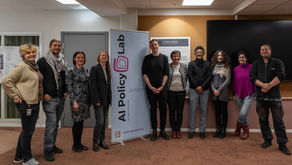I studied artificial systems in the early 90s because such systems seemed to offer endless possibilities, for example assisting radiologists in finding diseases in medical images. In the following two decades I used artificial systems to study neural systems (how does the human brain use physical patterns and biases to get a quick first impression of the natural environment) and social systems (how do humans use stereotypes as a mechanism to cope with the social environment).
I've sought to bridge the gaps between 1) scientific fields, 2) research and education, and 3) science and society since the beginning of my professional career. Exploring in-between spaces and choosing less-traveled roads gives me a lot of pleasure and teaches me a lot. This is why I avoid the academic culture of publish-or-perish, and why I support innovative reward and recognition systems focussing on cooperation rather than competition.
Currently I am a full professor of socially-Intelligent AI at the University of Amsterdam. I lead the Socially Intelligent Artificial Systems (SIAS) group at the Informatics Institute. I am founder and scientific director of the Civic AI Lab, a project aimed at developing AI technology to increase equal opportunity in the fields of education, welfare, environment, mobility and health. And I am Program Director of the Msc Data Science & Information Systems at the University of Amsterdam.
In "Infinity, Kaleidoscopy and Society: On Reflections of AI" and accompanying video presentation here I, lay out what I think of AI, and below you can find some media highlights of my academic work and social engagements.











